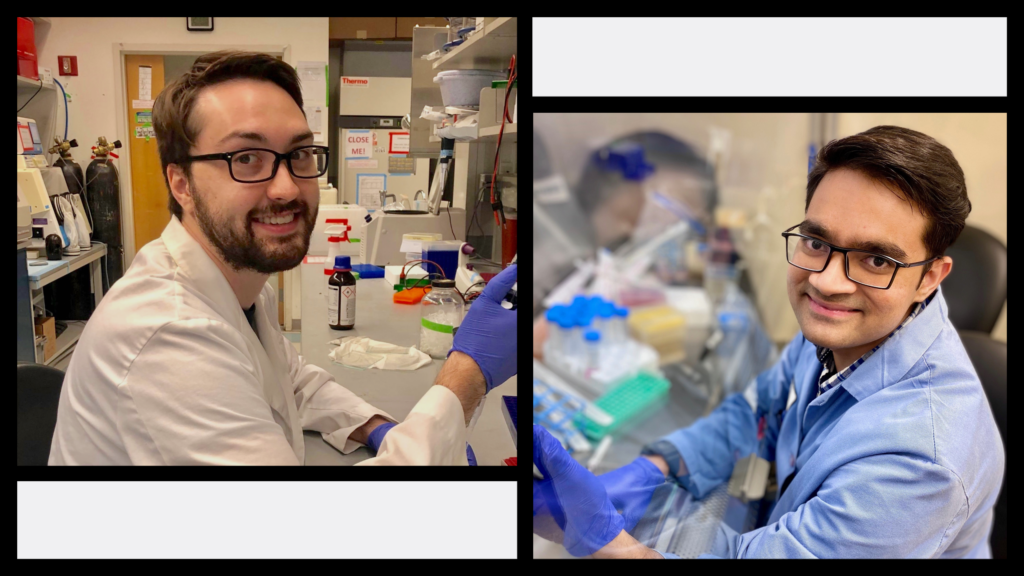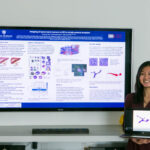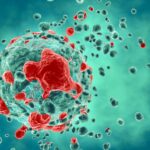Students Win Awards at National Cancer Institute 2020 Junior Investigator Meeting

Josh DiGiacomo (above photo left) and Kaustav Bera (above photo right) received awards for their poster presentations at the National Cancer Institute 2020 Junior Investigator Meeting for the Cancer Systems Biology Consortium, Physical Sciences-Oncology Network, and Big Data Scientist Training Enhancement Program. DiGiacomo and Bera are 5th year students in the Department of Chemical and Biomolecular Engineering and at the Johns Hopkins Physical Sciences-Oncology Center.
Josh DiGiacomo
Poster title: The Extracellular Matrix Mediates FGF-Induced Estrogen Receptor Activity and Therapeutic Response
DiGiacomo’s studies the extracellular matrix’s (ECM) role on estrogen receptor-positive (ER+) breast cancer, the most common breast cancer subtype. The ECM is part of the body’s tissues and is like a scaffold that surrounds cells. Cells move along this scaffold and receive signals from it.
ER+ breast cancer treatments includes targeting the estrogen receptor since it can help breast cancer grow when its activated, but resistance to these treatments are unfortunately common. With the help of his mentor Daniele Gilkes, DiGiacomo’s research has shown that a protein called Fibroblast Growth Factor 2 (FGF2) sticks to the ECM scaffold and can activate the estrogen receptor and allow the cells to become resistant to treatment that targets the estrogen receptor. This is helpful information when choosing treatment options because it considers both the type of cancer and the tumor’s microenvironment.
“I’m very happy to have my research recognized. I hope that one day it can contribute to a major advancement in the field,” said DiGiacomo
Kaustav Bera
Poster title: Hydraulic Resistance Accelerates Cancer Metastasis via Coordination of Cytoskeleton and Ion Transporters
Cancer metastasis, or the spread of cancer from the primary tumor to other regions of the body, is responsible for most cancer-related deaths. When cancer cells migrate within our bodies, they experience a variety of physical forces. With his mentor Konstantinos Konstantopoulos, Bera combines engineered systems with molecular and biophysical assays to identify and characterize the role of such forces in the process of cancer cell migration.
“I am honored to receive this award and really excited that my fellow investigators liked our research. I greatly appreciate all the support and guidance from my advisor, lab members, and family,” said Bera.
Latest Posts
-
 Q&A with PSON Intern Jocelyn Hsu
August 19, 2021
Q&A with PSON Intern Jocelyn Hsu
August 19, 2021
-
 Start Up Founders from Johns Hopkins Aim to Stop Spread of Cancer
August 3, 2021
Start Up Founders from Johns Hopkins Aim to Stop Spread of Cancer
August 3, 2021
-
 Protein Appears to Prevent Tumor Cells from Spreading Via Blood Vessels
July 15, 2021
Protein Appears to Prevent Tumor Cells from Spreading Via Blood Vessels
July 15, 2021


